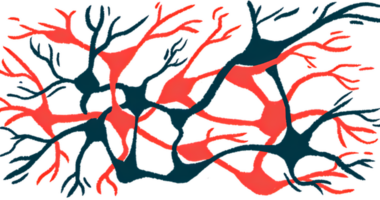NIH $2.8M Grant Funds Work Into Differing Alpha-synuclein Strains

A $2.8 million National Institutes of Health (NIH) grant will fund research into the molecular mechanisms underlying multiple system atrophy (MSA), a progressive disorder driven by protein misfolding and clumping similar to Parkinson’s disease.
Differences in the shape of the misfolded protein are being seen to distinguish the two neurodegenerative diseases, and questions remain as to exactly how the protein spreads.
The five-year grant, given to Amanda Woerman, PhD, an assistant professor of biology at the University of Massachusetts Amherst College of Natural Sciences, and Jason Bartz, a professor and chair of medical microbiology and immunology at Creighton University in Nebraska, could help in understanding Parkinson’s and like disorders.
“MSA is almost an accelerated version of Parkinson’s disease, with additional symptoms as the disease progresses,” Woerman said in a press release. “Patients are typically diagnosed in their 50s or 60s … [and] will progress quite rapidly and succumb to the disease within six to 10 years.”
Parkinson’s and multiple system atrophy share various motor symptoms, particularly in earlier disease stages. But in addition to being fast progressing, MSA affects such functions as blood pressure and bladder control, and the ability to digest food.
“These are all critical aspects of normal human physiology that are impaired in patients with MSA,” Woerman said. “As the name implies, multiple systems in the body begin to fail, often while the patient maintains cognitive function.”
The researchers believe that alpha-synuclein, in both disorders, assumes a prion-like behavior, meaning it can self-aggregate and propagate across cells. It spreads as “clumps of protein” in the brain, Woerman said.
“Historically, the prion hypothesis was only thought to apply to a group of diseases called the transmissible spongiform encephalopathies, such as mad cow and chronic wasting disease. Recent evidence suggests that many other protein misfolding diseases, including MSA, have prion-like properties,” Bartz added.
Proteins also need to take a particular, correct 3D structure or shape to work normally.
Evidence indicates that the shape adopted by alpha-synuclein differs between MSA and Parkinson’s, giving rise to two different protein strains.
“While protein structure usually dictates function, in protein misfolding diseases, the structure dictates the disease,” Woerman said. “For example, if you have a normal protein that looks like a circle, it misfolds into a square in Parkinson’s disease and a triangle in MSA. We call these different shapes ‘strains’ of a protein.”
Grant money will allow the researchers to study how different alpha-synuclein strains contribute to each disease, focusing particularly on their ability to spread within nerve cells — a hallmark of the progressive degeneration seen in patients.
“The hope is that, by understanding this mechanism of neuronal transport, we might identify novel targets for therapeutic development and disrupt this process in a way that would halt the progression of disease,” Woerman said.
Researchers will conduct complementary experiments in their labs. Woerman will continue her work using lab-grown primary nerve cells, while Bartz will study different protein strains in vivo, or in a living body, injecting them into the sciatic nerve of animals such as hamsters.
Ultimately, the researchers hope their efforts will support new treatments for MSA and Parkinson’s.
“As a scientist, you have to be studying something that you find incredibly compelling,” Woerman said. “I really can’t think of anything that I care more about in science than trying to alleviate the suffering that these patients and their families are going through.”







